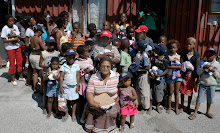SA's ability to attract and retain talent is being hindered by shortfalls in education, according to the findings of a new global talent index.
The new study, released on Monday by research group Heidrick & Struggles in conjunction with the Economist Intelligence Unit, said that a lack of emphasis on education in SA was one of the biggest threats to the country's ability to fulfill its potential to attract and retain talent within its workforce.
Overall, SA was ranked 45 out of the 60 countries that were analysed in the 2011 Global Talent Index. Its ranking showed a marginal improvement on its previous ranking in the first index, published in 2007, when it was placed 24 out of 30.
"However, it must be noted that other countries are expected to reduce the gap between themselves and the US, which leads the world for talent and is projected to remain at the top spot in 2015, mainly through increased spending on education, as well as through more open labour laws," Heidrick & Struggles said.
The survey found that talent across the globe was outstripping supply and that countries were not moving fast enough to prepare workers for the needs of tomorrow's economy.
The index analysed and compared the countries according to seven indicators: demographics, the quality of compulsory education, the quality of university education, the quality of the labour force, the degree to which the work environment nurtures talent, the mobility and relative openness of the labour market and the countries' proclivity to attract talent. Each of these indicators consisted of several components or sub-categories for which each country was awarded points and ranked in relation to the rest of the countries.
The most dramatic improvement SA was expected to make was in its proclivity for attracting talent. Currently ranked at number 41, the country was expected to move into the 30th position by 2015.
This is a relative yet significant improvement on the country's results in the previous Global Talent Index - in 2007, SA was placed last in this category, out of the 30 countries studied.
To ascertain what would make people choose to work in each country, the researchers examined levels of personal disposable income and employment growth there. Both of these figures are expected to improve - SA was found to have the 17th fastest-growing workforce and was projected to move into 12th place by 2015, Heidrick & Struggles said.
The number one country in terms of its proclivity for attracting talent was Singapore, followed by Hong Kong, then the US.
Similarly, SA was found to have a work environment that was relatively effective in nurturing talent.
The survey showed that SA did not display a great degree of openness of its labour market, being ranked 45 out of the 60 countries. "To improve this, more foreign nationals would need to be hired and openness of trade would need to be improved.
"Additionally, while SA was found to be doing an increasingly good job of attracting foreign direct investment when the previous Global Talent Index was released, this situation appears to be in reverse and urgently needs to be reassessed," Heidrick & Struggles said.
Poor performance on the educational front was, however, the biggest thorn in the country's side. Insufficient enrollment and spending on tertiary education, as well as a shortage of internationally recognised universities, put SA in 48th position in terms of the quality of university education, and would see it drop down to 50th place by 2015.
"The prognosis for compulsory schooling is not good, either. Although enrollment in secondary schooling is increasing, children are not completing their schooling, spending on education is insufficient, pupil to teacher ratios are increasing and the problem of adult illiteracy continues to escalate," the research group said.
This left SA with a ranking of 43 in terms of the quality of its compulsory schooling, which would drop to 49th position by 2015.
With the quality of its labour force ranking it in position 38, SA was just ahead of Sri Lanka and Mexico. This factor was measured according to the number of employees engaged in research and development, the quality, language skills and technical skills of the workforce and the number of local managers, and SA seems set to remain in this position.












